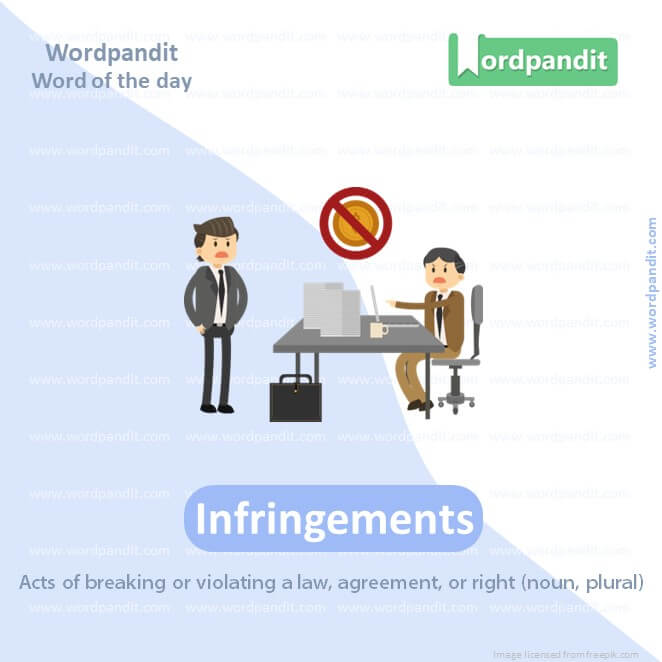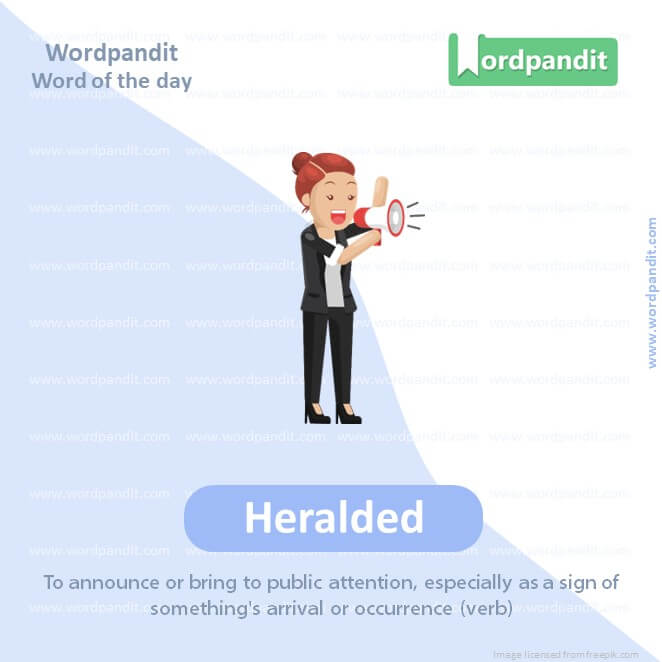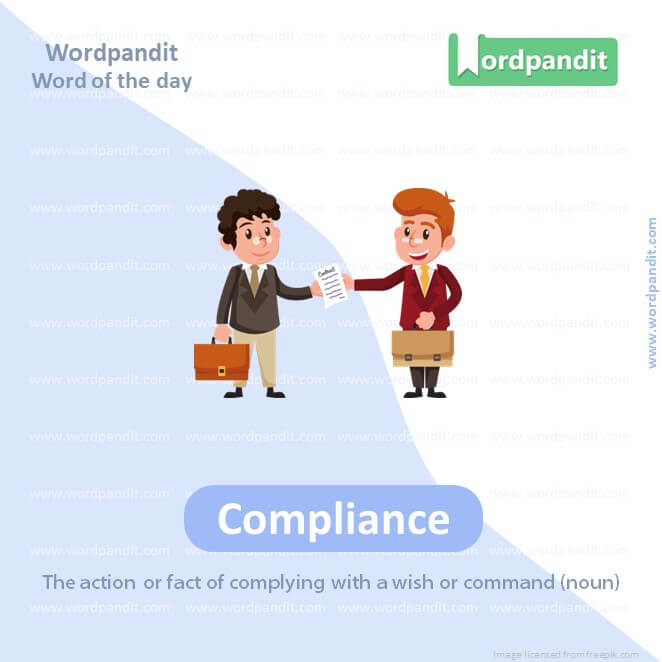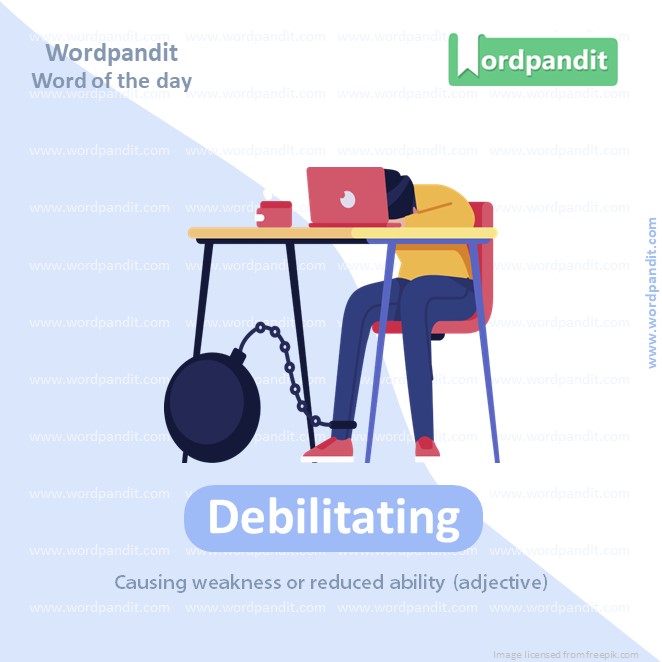Daily Vocabulary Words: List of Daily Used Words in Leading Indian Newspapers
Hi there. Welcome to this special section @ Wordpandit. Our endeavour here is straightforward: highlighting daily vocabulary words that you would come across in leading newspapers in the country. We have included the following newspapers in our selection:
• The Times of India
• The Economic Times
• Hindustan Times
• Mint
• Indian Express
We are putting in extensive work to develop your vocabulary. All you have to do is be regular with this section and check out this post daily. This is your repository of commonly used words; essentially, we are posting a list of daily used words. Hence, this has significant practical application as it teaches you words that are commonly used in leading publications mentioned above.
Visit the website daily to learn words from leading Indian newspapers.
WORD-1: Anonymity
CONTEXT: It is in this context that the SC judgment is truly a landmark one. The SC averred that the voters’ right is breached by the anonymity clause and that information on political parties is essential.
SOURCE: Indian Express
EXPLANATORY PARAGRAPH: Imagine you’re playing hide and seek, and you’re hiding so well that no one can find you or even know who you are. That’s like being anonymous. When you’re anonymous, no one knows your name or who you are, like when you draw a picture but don’t put your name on it, so no one knows you made it.
MEANING: The condition of being unknown or unacknowledged by name (noun).
PRONUNCIATION: a-nuh-NIM-uh-tee
SYNONYMS: Obscurity, namelessness, incognito, concealment, privacy
USAGE EXAMPLES:
1. She donated money to the school under anonymity so no one knew who gave the money.
2. The internet allows for a level of anonymity when posting comments.
3. Anonymity can protect people who share their opinions in difficult situations.
4. Many artists choose anonymity to keep their personal lives private.

WORD-2: Infringement
CONTEXT: In its landmark judgment, SC averred that poll bond is violative of fundamental rights and infringement of RTI is unjustified for curbing black money.
SOURCE: Indian Express
EXPLANATORY PARAGRAPH: Imagine if you have a special toy that only you are supposed to play with, but then someone else starts playing with it without asking you. They’re not following the rules about your toy. Infringement is when someone does not follow the rules about using things that belong to someone else or are special in some way.
MEANING: Acts of breaking or violating a law, agreement, or right (noun. plural).
PRONUNCIATION: in-FRINGE-ment
SYNONYMS: Violation, breach, encroachment, trespass, infringement
USAGE EXAMPLES:
1. Copying someone else’s work without permission is an infringement of copyright.
2. Building a fence on your neighbor’s property is an infringement of their property rights.
3. The company was fined for infringement of environmental laws.
4. Infringement of privacy occurs when someone shares your secrets without permission.
WORD-3: Curbing
CONTEXT: Poll bond, in fact, is violative of fundamental rights and infringement of RTI is not justified for curbing black money.
SOURCE: Indian Express
EXPLANATORY PARAGRAPH: Imagine you’re walking your dog, and you use a leash to make sure it doesn’t run into the street or bother other people. Curbing is like using a leash but for actions or things we don’t want to get out of control, like making sure cars don’t go too fast in a school zone.
MEANING: The act of controlling or limiting something (verb).
PRONUNCIATION: KUR-bing
SYNONYMS: Restraining, controlling, checking, limiting, restricting
USAGE EXAMPLES:
1. Curbing pollution is important to keep the air clean.
2. The new law aims at curbing speeding in residential areas.
3. Curbing spending is essential for saving money.
4. Efforts are being made to curb the spread of the disease.
WORD-4: Defunct
CONTEXT: Satark Nagrik Sangathan in its recent study of State Information Commissions’ performances found that four out of 29 are defunct and at least three are still headless.
SOURCE: Indian Express
EXPLANATORY PARAGRAPH: Think about a toy that used to light up and make sounds, but now it doesn’t work anymore, no matter what you do. Defunct is a word we use for things that used to work or exist but don’t anymore, like your toy.
MEANING: No longer existing or functioning (adjective).
PRONUNCIATION: di-FUNKT
SYNONYMS: Extinct, obsolete, disused, inoperative, nonfunctional
USAGE EXAMPLES:
1. The company became defunct after going bankrupt.
2. That old law is now defunct and no longer applies.
3. The machinery in the factory is defunct and needs replacement.
4. Many old websites are defunct and no longer accessible.

WORD-5: Heralded
CONTEXT: It was the filing of the first RTI query in Police station, Poona on October 12, 2005, that heralded the RTI era in India.
SOURCE: Indian Express
EXPLANATORY PARAGRAPH: Imagine you’re at school and someone comes running in to tell everyone that it’s time for lunch. That person is like a messenger announcing something exciting. Heralded means to announce something important or to be a sign that something is coming, like a birthday party invitation tells you a party is soon.
MEANING: To announce or bring to public attention, especially as a sign of something’s arrival or occurrence (verb).
PRONUNCIATION: HER-ald-ed
SYNONYMS: Announced, proclaimed, signaled, foretold, indicated
USAGE EXAMPLES:
1. The warm weather heralded the beginning of spring.
2. The principal heralded the start of the new school year with a speech.
3. The invention of the smartphone was heralded as a revolution in communication.
4. The arrival of swallows is often heralded as a sign of summer.

WORD-6: Compliance
CONTEXT: Compliance with the Commission’s orders saw delays in some cases while pendency increased.
SOURCE: Indian Express
EXPLANATORY PARAGRAPH: When you’re asked to clean up your toys and you do it, you’re following the rules or instructions. Compliance is just a big word for doing what you’re told or following the rules, like when you listen to your teacher or parents.
MEANING: The action or fact of complying with a wish or command (noun).
PRONUNCIATION: kuhm-PLY-ence
SYNONYMS: Adherence, conformity, obedience, submission, accordance
USAGE EXAMPLES:
1. The restaurant was closed for not being in compliance with health codes.
2. Compliance with safety procedures is mandatory for all workers.
3. The software was updated to ensure compliance with new regulations.
4. Wearing helmets while biking is a compliance issue for safety.
WORD-7: Probing
CONTEXT: Probing queries on corruption led to the murder of many RTI activists.
SOURCE: Indian Express
EXPLANATORY PARAGRAPH: Think about when you’re looking for your lost toy under the bed. You have to look carefully and check every corner to find it. Probing is like searching very carefully for something, especially when you’re trying to learn more about it or understand it better.
MEANING: Examining or investigating thoroughly (verb).
PRONUNCIATION: PROH-bing
SYNONYMS: Investigating, examining, exploring, searching, delving
USAGE EXAMPLES:
1. The detective is probing into the mystery to find clues.
2. Scientists are probing the depths of the ocean to discover new species.
3. The interview questions were probing her past experiences.
4. Probing the reasons behind the decision can provide more insight.
WORD-8: Baulked
CONTEXT: The ruling party and the Opposition baulked at its audacity.
SOURCE: Indian Express
EXPLANATORY PARAGRAPH: Imagine you’re about to jump into a pool, but right before you do, you stop because the water looks really cold. Baulked means you hesitate or stop yourself from doing something because you’re unsure or scared.
MEANING: Hesitated or refused to accept an idea or undertaking (verb).
PRONUNCIATION: BAWK-ed
SYNONYMS: Hesitated, recoiled, shrank, flinched, demurred
USAGE EXAMPLES:
1. She baulked at the idea of skydiving due to her fear of heights.
2. The horse baulked at the jump during the competition.
3. He baulked at signing the contract without reading it thoroughly.
4. Many baulked at the change, fearing it would lead to more problems.

WORD-9: Debilitating
CONTEXT: The decision left a debilitating impact on the CIC.
SOURCE: Indian Express
EXPLANATORY PARAGRAPH: Imagine you have a toy robot that suddenly starts moving very slowly and can’t do its robot dance anymore because its batteries are almost out. Debilitating is a word that means something is making you weak or unable to do things as well as you normally could, like the robot with low batteries.
MEANING: Causing weakness or reduced ability (adjective).
PRONUNCIATION: di-BIL-i-tay-ting
SYNONYMS: Weakening, enfeebling, draining, sapping, impairing
USAGE EXAMPLES:
1. The flu had a debilitating effect on her, making it hard to get out of bed.
2. Debilitating pain can prevent someone from going about their daily activities.
3. A debilitating disease can greatly affect one’s quality of life.
4. The heat was so debilitating that it was hard to think or move quickly.

WORD-10: Compelling
CONTEXT: There is a compelling demand that political parties thriving on public money should be more open to public scrutiny?
SOURCE: Indian Express
EXPLANATORY PARAGRAPH: Imagine watching a movie that’s so interesting and exciting that you can’t stop watching it, even if it’s past your bedtime. Compelling means something is so fascinating or important that you feel you must pay attention to it or follow it.
MEANING: Evoking interest, attention, or admiration in a powerfully irresistible way (adjective).
PRONUNCIATION: kuhm-PELL-ing
SYNONYMS: Fascinating, engrossing, captivating, persuasive, convincing
USAGE EXAMPLES:
1. The book was so compelling that she read it in one sitting.
2. His argument was compelling, convincing everyone in the room.
3. The evidence presented in the case was compelling and hard to ignore.
4. She had a compelling reason for being late to the meeting.
Vocabulary Exercises
In the language learning fitness regime, ‘vocabulary exercises’ are vital workouts that flex cognitive muscles. These exercises help reinforce new vocabulary, enhance memory, and promote active application. However, to reap the full benefits of ‘vocabulary exercises’, it’s crucial to tackle them with the right strategy and mindset.
To begin with, when approaching ‘vocabulary exercises’, it’s important to view them as opportunities to explore words’ usage. Completing these exercises isn’t simply about ticking off correct answers; it’s about deepening the understanding of the words in various contexts which aids in their active usage.
Leveraging technology can greatly enhance the efficiency of ‘vocabulary exercises’. Digital apps often provide a wide range of ‘vocabulary exercises’ that range from fill-in-the-blank exercises to match-the-column tasks. These digital platforms offer instant feedback and keep you engaged while turning learning into an interactive experience.
Incorporating ‘vocabulary exercises’ in your daily learning routine helps consolidate your vocabulary knowledge. Set aside specific time slots every day to commit to these exercises. Regular revisions steps up retention and keep the learning curve ascending.
Personalizing ‘vocabulary exercises’ also proves beneficial. This could involve creating your own sentences using the learnt vocabulary or drawing visuals that associate with each word. These personalized exercises stimulate more profound learning and enhance the recall ability.
To conclude, ‘vocabulary exercises’ are essential tools in your language learning toolkit. They provide a platform for active learning, promote better recall, and, when paired with technological tools, make learning more engaging and effective. Furthermore, incorporating these exercises into your daily routine and personalizing them heightens their impact. Remember, ‘vocabulary exercises’ are not merely tasks, they are stepping stones guiding you towards your language mastery goals.













